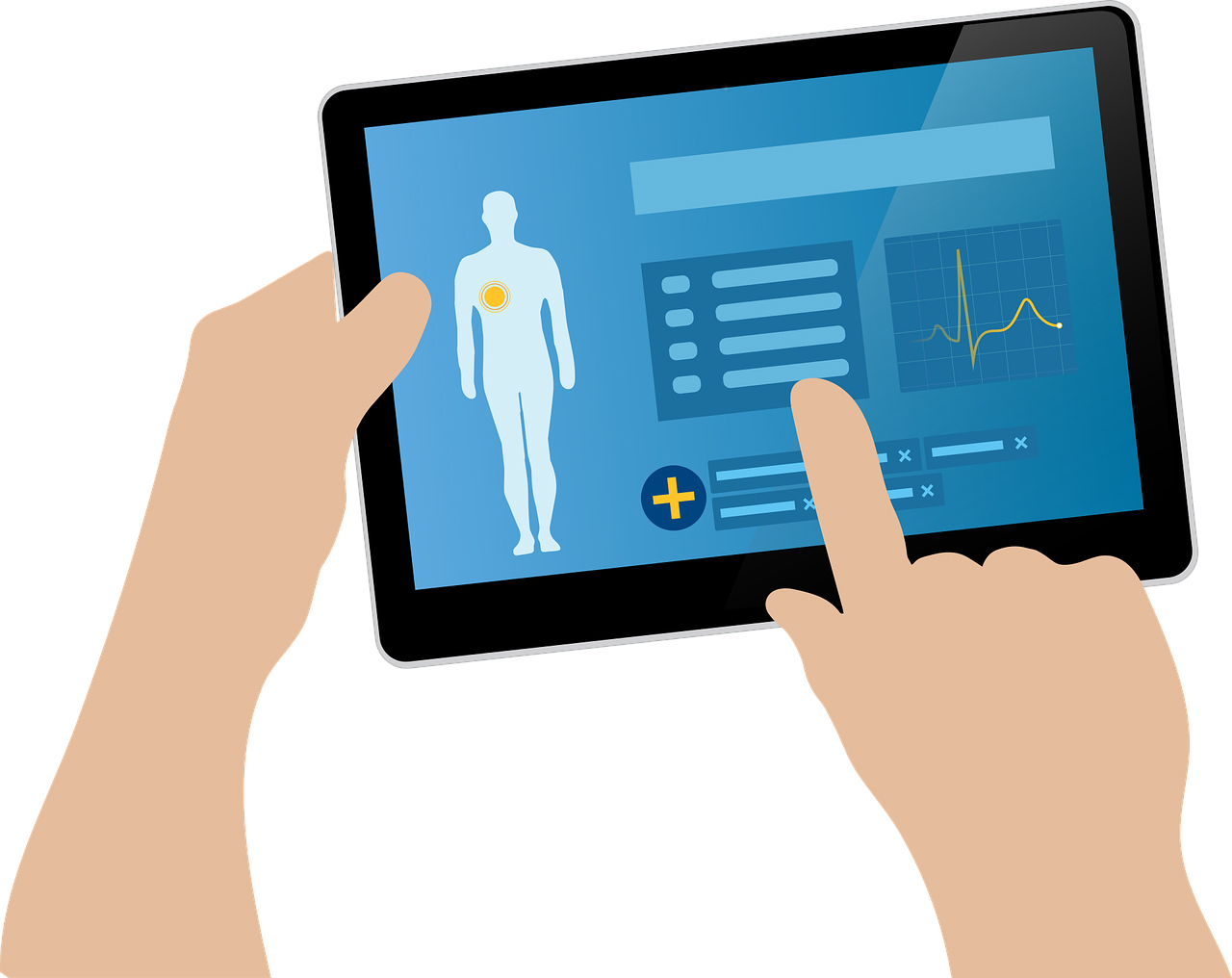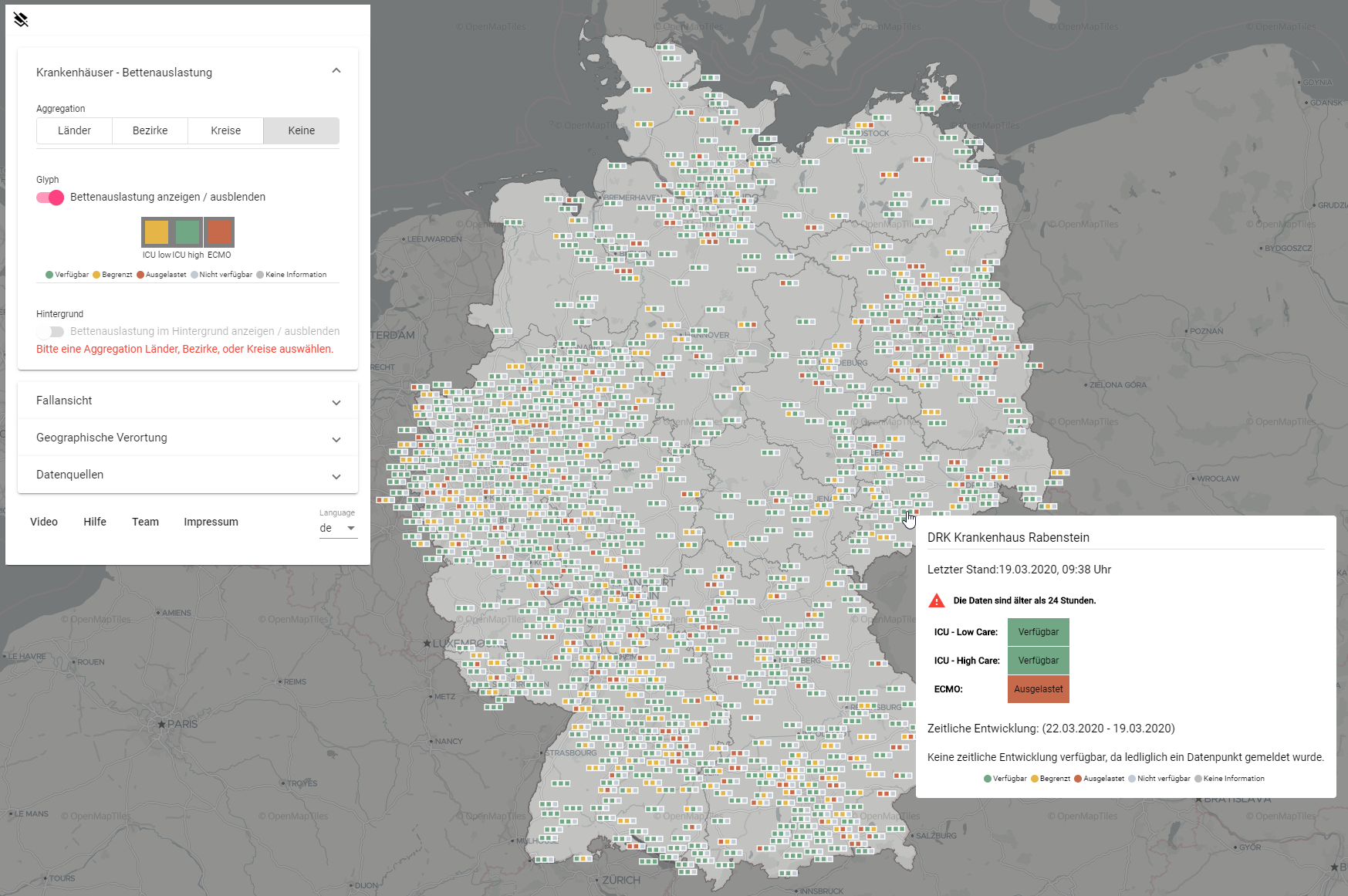April 9, 2020; Leon Kokkoliadis
The Sars-CoV-2 pandemic affects not only everyday and social life, but of course also the research done within the SFB-TRR 161.
Around the world scientists collaborate, share their results, and communicate in a new way. We see a new dynamic in many research infrastructures, which could in many sectors lead to lasting changes.
Our researchers started interdisciplinary projects and cooperations to help with their expertise. In teams they try to find answers to pressing questions related to the coronavirus pandemic.
Here we put together a list of these projects and activities, our researchers are participating in.
New IT infrastructure for the Constance hospital

Oliver Deussen and Jochen Görtler are currently building up the IT infrastructure for the expected Covid-19 rush at the Constance hospital. This includes
- app for SWAT team deployment planning and occupancy overview
- a video server for medical training material
- Microsoft Teams provisioning
- introduction of the internal messenger Beekeeper
- configuration of tablets for communication between Covid-19 patients and nurses and doctors
Oliver Deussen, vice speaker of the SFB-TRR 161, about this project:
“Seeing more and more Covid-19 patients coming is a clear reminder of the importance of our work done here. It is stressful, but also very exciting, because otherwise one would hardly have the chance to work in a clinic in a state of emergency, so to speak, directly at the front line.”
Participating researchers from the SFB-TRR 161:
Oliver Deussen (Research Project A01 , A04 )
Jochen Görtler (Research Project A01 )
CoronaVis—Online tool showing intensive care bed capacities of hospitals

Screenshot of CoronaVis online tool showing the intensive care bed capacity status in Germany.
CoronaVis , is an interactive online tool for visualizing up-to-date hospital capacities within Germany. The platform was developed by a team of 15 participants from the chairs Data Analysis and Visualization ( AG Daniel Keim ) and Visual Computing ( AG Oliver Deussen ), in consultation with Hans-Joachim Kabitz , chief physician of the Constance hospital. The online application allows doctors to obtain an overview of the intensive care bed situation of German hospitals. Data displayed was gathered from the DIVI Intensive Care Register , the Robert Koch Institute (RKI), and the German Hospital Federation (DKG). Currently, we display the bed-status (occupied, limited, and available) for 975 hospitals in three categories: ICU low care, ICU high care, and ECMO. However, we hope to gain access to more detailed data from the RKI, including the actual number of free beds soon. In addition nearby helipads are displayed.
Resource: https://coronavis.dbvis.de/de/index.html
Participating researchers from the SFB-TRR 161:
Oliver Deussen (Research Project A01 , A04 )
Daniel Keim (Research Project A03 )
Jochen Görtler (Research Project A01 )
Matthias Kraus (Research Project A03 )
Watch Video “CoronaVis - Visualisierung von Intensivbettenkapazitäten”:
CoronaVis Media Coverage:
Uni Konstanz entwickelt ihr Corona-Hotspot-Tool weiter
Singener Wochenblatt, 18.05.2020.
Diese Internetseite zeigt, welche Krankenhäuser noch Kapazitäten haben
Augsburger Allgemeine; 21.04.2020.
Belegung von Intensivbetten: Ein Tool aus Konstanz soll Klarheit bringen
Schwäbische Zeitung, 11.04.2020.
Wie viele Intensivbetten sind verfügbar?
Lungenärzte im Netz, 10.04.2020.
Wie Karten Leben retten sollen
CoronaVis mentioned as the the "Constance solution" to show shortage of intensive care beds in advance;
Spiegel Online, 10.04.2020.
Deutsche entwickeln Karte für Intensivbetten
Interview with SFB-TRR 161 Project Leader Daniel Keim on CoronaVis, a digital map to show german hospitals capacities for intensive care beds;
BLICK.CH, 08.04.2020.
Neues Corona-Tool macht Intensivbetten in Deutschland sichtbar
Badische Neueste Nachrichten, 03.04.2020.
Visualization tool enables doctors to get an overview of critical care bed capacities
news-medical.net Life Sciences, 02.04.2020.
Konstanzer Forscher entwickeln Corona-Landkarte
Podcast with SFB-TRR 161 Project Leader Daniel Keim on CoronaVis, a digital map to show german hospitals capacities for intensive care beds;
SWR4, BW Regional, 01.04.2020.
Corona-Krise-Wie eine Webseite im Kampf gegen Virus helfen kann
Interview with SFB-TRR 161 Project Leader Daniel Keim on CoronaVis, a digital map to show german hospitals capacities for intensive care beds;
Südkurier, Nr. 76, 31.03.2020.
COVID-19 Disease Map—Created from knowledge repository on mechanisms of Covid-19
![]()
We aim to establish a knowledge repository on mechanisms of COVID-19 as a broad community-driven effort.
The knowledge repository contains relevant databases, literature and datasets, as well as collection of other relevant content repositories and resources.
The COVID-19 Disease Map is an assembly of molecular interaction diagrams, established based on
literature evidence.
We focus on host-pathogen interactions, specific to the SARS-CoV-2 virus.
The knowledge repository will support the research community and improve our understanding of the disease toward the development of efficient treatment.
Resource: https://covid.pages.uni.lu/map_curation
Participating researchers from the SFB-TRR 161:
Falk Schreiber (Research Project D04 , INF )
Press contact
Leon Kokkoliadis
Public Relations
leon.kokkoliadis@visus.uni-stuttgart.de
Last update: May 29, 2020.
News and Press
Looking for an Expert?
The Project Leaders of the SFB-TRR 161 are experts in the field of visual computing. You are welcome to get in touch directly.
If you need help finding the right contact for your inquiry, please contact the Public Relations Team.
BOGY in der Forschung?
Du möchtest schon während der Schulzeit die Welt der Forschung kennenlernen? Du möchtest dich über die Studiengänge an unseren Transregio Partnern informieren? Du programmierst gerne oder interessierst dich für Informatik und Computergrafik?
Ein BOGY im SFB-TRR 161 gibt dir die Chance, dich mit unseren Forschern auszutauschen und in die Arbeitswelt der Wissenschaft einzutauchen.
FOR SCIENTISTS
Projects
People
Publications
Graduate School
Equal Opportunity
FOR PUPILS
PRESS AND MEDIA
© SFB-TRR 161 | Quantitative Methods for Visual Computing | 2019.






